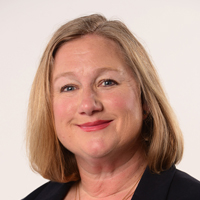
Many people don’t share enough information with their executors or named trustees. The appointed individuals, usually family members, experience time-draining stress as they have to scurry around, while they are grieving themselves, trying to find documents to satisfy banks and brokerages so appropriate transfers of assets can be made to beneficiaries. Clients can relieve a good portion of that anxiety and ensure that assets are transferred according to their wishes if they do a few simple things.
Communication is key, in writing whenever possible. I know this professionally, as well as personally.
Back in September, my father-in-law passed away after a six-month illness. Since his daughter-in-law (me) is a financial planner and he had just served as executor for his stepmother’s estate, he had updated his documents a year earlier, so his wishes were relevant and current. This was a huge comfort as we watched him battle a neurological condition that the doctors could not diagnose, never mind treat.
You see, in addition to updating those documents, he had given us a tour of his filing system to show us where things were kept. He also added my husband to the safe deposit box and the bank accounts, and gave him online access to pay the bills. He also added to the accounts another son who lived five minutes away from the nursing home, which was a godsend. In June, we moved my father-in-law closer so his sons could visit him daily, and that made all the difference in the quality of his life at the end.
When he was no longer able to talk, his sons would just call and give him updates about his financial matters and as one brother shared, “It was like a lullaby to him; you could see him relaxing as he realized they can and were handling these matters for him.
Private But Prepared
Like many members of his generation, my father-in-law was incredibly private about his financial status. He had one of the most tremendous work ethics I had ever seen: He rose at 3 a.m. to deliver newspapers and drove the bus for the school where he taught high school math and science. He also drove the bus many days for extracurricular activities. In fact, he was still driving a bus when his poor health forced him to resign, and he died with 89 unused sick days. He taught his children the value of a dollar and his thriftiness is legendary in our family.
After serving as executor for his own stepmother, he realized how important it was that my husband, his executor, know how to find the important papers. Although he was very private about specific amounts until he was quite ill, he told us where different accounts were located, how to access them and who the people involved with the accounts would be. We discussed his wishes for a funeral and his medical care. At the end, knowing what he had told us was so helpful.
While sometimes situations like this can pull a family apart, my husband and his brothers drew closer together, remembering what their dad wanted and discussing who would do what in which situation to make sure his wishes were carried out.
Unlike many people, my father-in-law didn’t worry about his children being taken advantage of because he had educated them, connected them to his professionals and gave them the access they needed,
He also shared with me that part of the reason he named my husband as executor, besides his fabulous attention to detail as an engineer, was that as a CFP I could help him and share my experience. His sons are very smart and savvy but there are so many subtleties, so I am glad that I have had the experience that I have, and that we had so many conversations. We knew where the land mines were so we could avoid them.
“We knew where the land mines were so we could avoid them.”
A Box Full of Answers
Compare that to a widow I worked with early on in my career who came to the meeting with a box full of papers. She knew only that they were “important” because her deceased husband had told her so, but she didn’t know why or what to do with them. We spent two hours going through the box, labeling and prioritizing and making a to-do list.
Unlike many widows, she at least knew where the important documents were and not to throw them away. Much to her relief, we were able to figure out all the things she needed to do to settle his estate. However, I would avoid putting any loved ones in that position if you can. My client had enough to be anxious about just being newly widowed.
Beginning Steps
If your client is worried about what will happen to their legacy at their death, or they concerned about their heirs, there are many things you can do. The ideas given here are a sampling — you and estate planning attorneys will have additional ideas for your client’s specific situation.
Communicate, especially in writing.
I have a document called a Family Love Letter that I suggest clients complete and give to their next of kin. It includes all the important information anyone would need in the event of incapacitation or death, including names and contact information for important people, prescriptions, location of assets, etc.
I host a group called Money Moms and my mantra for them is to make sure they know “What they have, where it is, and how to access it.” This helps ensure that both spouses know this. I ask clients to complete Funeral Wishes worksheets, so they can let their heirs know how they wish to be celebrated. This is perhaps one of the most comforting documents since the grief and shock are fresh when you are planning these events. Having requests in writing makes it easier to execute, rather than trying to remember conversations from long ago.
Make sure clients’ documents reflect their wishes.
This includes beneficiary forms. If your client has an heir who cannot manage money well, consider a spendthrift trust. Your client should make sure their estate planning attorney knows about any concerns they have so these concerns can be included in their estate plan. It would also be beneficial for your client to also share those concerns with their executor, so they can help support the client’s wishes, and certainly with any trustee you appoint. If your client is not familiar with these roles, you or their estate planning attorney can help explain what they are and help your client decide who might be appropriate for them. Wills are also where clients should appoint guardianship for minors — an important point that many people overlook.
Don’t be afraid to talk about the hard stuff.
That is the only way your clients’ wishes can be carried out. I have heard clients talk about “If I die” and I always have to gently remind them that “Nothing is certain but death and taxes.” Confronting aging, declining health and our mortality is challenging, but pretending it won’t happen doesn’t solve any problems or help those your client is leaving behind. “Do it for those you love” is often the motivation I use to help people to discuss these topics with their loved ones.
Recently, I talked to my parents about their wishes for long-term care should that be something they need. They have identified a facility they like and have their names on a list there. They told me who I should contact to sell their house and we talked about what to do if one predeceases the other. Full disclosure: My mother is a retired financial planner, and my father is a retired physician so our comfort level with such things is higher than perhaps many others, but it is so good to know what they want to have happen in those circumstances.
Additional reading: COVID-19 Has Brought the Mortality Conversation Front and Center
Encourage your client to ask for help.
I have so many clients who are initially concerned that they don’t “know” enough about finances or related topics. While money matters are something everyone needs some understanding of, it is also a complicated topic. Having a support team, including you, a CPA and an estate planning attorney, can really help your client through tough times. Several of my clients came to me when their spouses suffered strokes or had a terminal diagnosis, so that we could teach them what they needed to know to manage their affairs and support them through this tough time. I have also facilitated family meetings to have some of these tough conversations since sometimes having an objective third party can make it less emotional.
If your client has concerns, the worst thing they can do is to ignore them. There are so many tools which can be employed to manage concerning situations but identifying and planning for them is critical. Don’t you want to do all you can to make sure your client is prepared? Speaking from experience, I know your clients’ heirs will be very grateful.
Lauren Gadkowski Lindsay, is a fee-only CFP licensee at Beacon Financial Planning in Houston, Texas. She can be reached a lauren@bfpcc.com.







